October 16 stands as one of history’s most eventful days, witnessing the rise and fall of empires, groundbreaking discoveries, and moments that shaped our modern world across centuries of human achievement.

Politics and Government Events on October 16
1905 – The Partition of Bengal in India takes place
British colonial authorities divided Bengal into two provinces, fundamentally altering the administrative structure of British India. The partition separated predominantly Muslim eastern Bengal from the Hindu-majority western regions.
The controversial decision sparked widespread protests and boycotts across India. This administrative move ultimately strengthened the growing Indian independence movement and demonstrated the deep tensions within colonial governance.
1909 – William Howard Taft and Porfirio Díaz hold the first summit between a U.S. and a Mexican president

Presidents Taft and Díaz made history by conducting the first bilateral summit between American and Mexican leaders. The meeting addressed border security and trade relations between the neighboring nations.
Assassins targeted both presidents during their historic encounter, but security forces thwarted the attack. This diplomatic milestone established precedents for future Mexican-American presidential meetings and cross-border cooperation.
1964 – Leonid Brezhnev becomes leader of the Soviet Communist Party
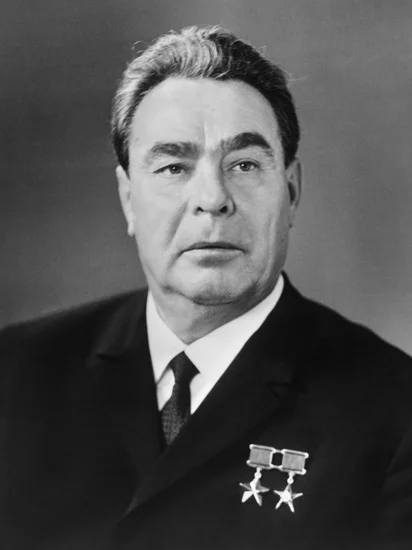
Brezhnev consolidated power within the Communist Party hierarchy, effectively ending Nikita Khrushchev’s tumultuous reign. Alexei Kosygin simultaneously assumed control of the Soviet government apparatus.
The leadership transition marked the beginning of the Brezhnev era, characterized by political stability and economic stagnation. This power shift would influence Soviet policy for the next eighteen years.
1968 – Kingston, Jamaica is rocked by the Rodney riots
Jamaican authorities banned prominent historian Walter Rodney from returning to the country, sparking massive civil unrest. Students and activists took to Kingston’s streets, demanding academic freedom and racial justice.
The riots highlighted growing tensions between Jamaica’s educated youth and conservative political establishment. Rodney’s exclusion became a rallying point for Black Power movements throughout the Caribbean region.
1970 – Canadian Prime Minister Pierre Trudeau invokes the War Measures Act
Trudeau declared martial law in response to the October Crisis, suspending civil liberties across Canada. The Front de libération du Québec had kidnapped British diplomat James Cross and murdered Quebec cabinet minister Pierre Laporte.
Federal troops occupied Montreal and Quebec City while police arrested hundreds of suspected separatists. This unprecedented peacetime use of emergency powers divided Canadian public opinion and transformed federal-provincial relations.
1998 – Former Chilean dictator Augusto Pinochet is arrested in London

British authorities detained Pinochet on an extradition warrant for murder charges, shocking the international community. The arrest challenged traditional diplomatic immunity protections for former heads of state.
Pinochet’s detention sparked fierce debates about universal jurisdiction and international justice. The case established important precedents for prosecuting former leaders accused of crimes against humanity.
Military and Naval History on October 16
1934 – Chinese Communists begin the Long March
Mao Zedong’s forces broke through Nationalist encirclement, beginning their epic 6,000-mile retreat across China. Over 80,000 Communist troops abandoned their strongholds in southeastern China.
The Long March transformed a military defeat into a propaganda victory for the Communist cause. This strategic withdrawal established Mao’s leadership and created the mythology that would sustain the Communist revolution.
1939 – World War II: No. 603 Squadron RAF intercepts the first Luftwaffe raid on Britain
Royal Air Force pilots engaged German bombers over the Firth of Forth, marking the first aerial combat over British territory. The successful interception demonstrated Britain’s air defense capabilities.
This engagement marked the beginning of sustained German air attacks on British targets. The RAF’s performance boosted British morale and provided valuable intelligence about German bomber formations.
1940 – Holocaust in Poland: The Warsaw Ghetto is established

Nazi authorities sealed off a section of Warsaw, creating the largest Jewish ghetto in occupied Europe. Over 400,000 Jews were forced into overcrowded, unsanitary conditions within the ghetto walls.
The ghetto’s creation marked a crucial escalation in Nazi persecution of European Jews. These brutal living conditions would later fuel the Warsaw Ghetto Uprising and became symbols of Jewish resistance.
1943 – Holocaust in Italy: Raid on the Roman Ghetto
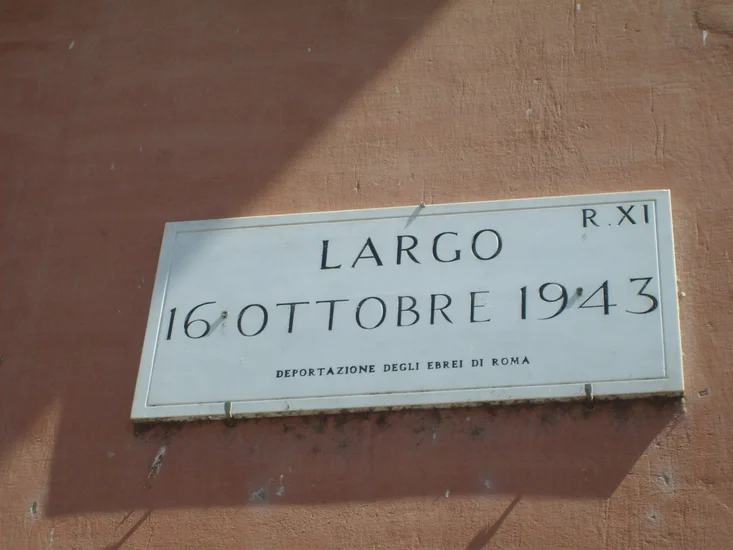
SS troops surrounded Rome’s ancient Jewish quarter, deporting over 1,000 residents to concentration camps. The raid occurred despite Vatican protests and Italian resistance efforts.
Most deportees perished in Auschwitz, devastating Rome’s historic Jewish community. The operation demonstrated Nazi determination to implement the Final Solution throughout occupied Europe.
1946 – Nuremberg trials: Ten defendants found guilty are executed by hanging

International military tribunals executed ten major Nazi war criminals, including foreign minister Joachim von Ribbentrop and military chief Wilhelm Keitel. The executions concluded the most significant war crimes trials in history.
These hangings established precedents for international justice and accountability for crimes against humanity. The trials demonstrated that even heads of state could face prosecution for wartime atrocities.
Science and Discovery Milestones on October 16
1964 – China detonates its first nuclear weapon
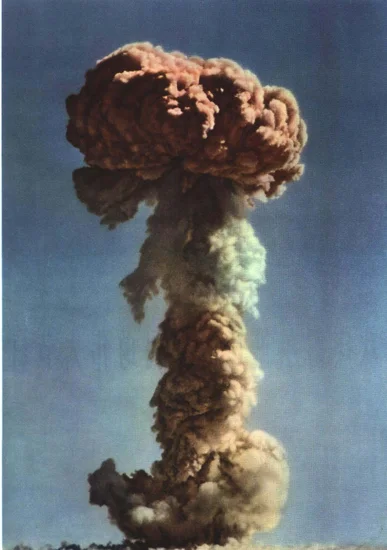
Chinese scientists successfully tested their first atomic bomb in the Lop Nur desert, making China the world’s fifth nuclear power. The test used a uranium-235 implosion design similar to the Hiroshima bomb.
The successful detonation dramatically altered global nuclear politics and Cold War dynamics. China’s nuclear capability challenged both American and Soviet strategic assumptions about nuclear monopoly.
1975 – Three-year-old Rahima Banu becomes the last known case of naturally occurring smallpox
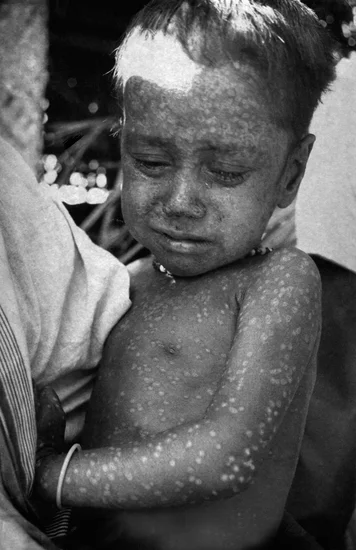
Bangladeshi child Rahima Banu contracted variola minor, marking the final natural smallpox infection in human history. World Health Organization surveillance teams immediately quarantined the area.
Her recovery marked the successful conclusion of the global smallpox eradication campaign. This achievement demonstrated that coordinated international public health efforts could eliminate deadly diseases.
1999 – The magnitude 7.1 Hector Mine earthquake strikes Southern California
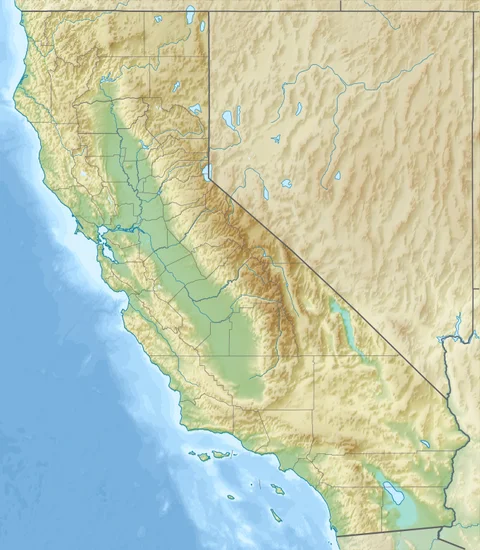
A powerful earthquake ruptured the Mojave Desert, creating surface faulting visible from space. The temblor occurred in a sparsely populated area, limiting casualties despite its significant magnitude.
Seismologists used the earthquake to study fault mechanics and earthquake prediction models. The event provided valuable data about seismic activity along the Eastern California Shear Zone.
2002 – The Bibliotheca Alexandrina opens in Egypt
The modern Library of Alexandria opened its doors, commemorating the ancient world’s greatest center of learning. The striking contemporary building houses millions of books and serves as a major cultural center.
UNESCO supported the project as part of efforts to revive Alexandria’s scholarly traditions. The library represents international cooperation in preserving and sharing human knowledge.
Cultural and Arts Events on October 16
1923 – Walt Disney and Roy Disney found the Disney Brothers Cartoon Studio
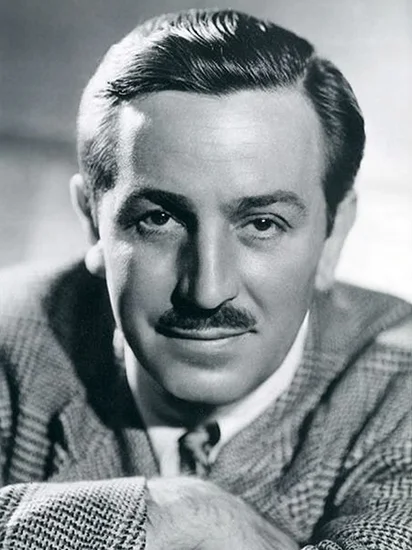
The Disney brothers established their animation studio in Hollywood, beginning with Alice Comedies shorts. Their small company would revolutionize animated entertainment and create beloved characters.
Walt’s artistic vision combined with Roy’s business acumen laid the foundation for a global entertainment empire. The studio’s founding marked the beginning of the modern animation industry.
1968 – Yasunari Kawabata becomes the first Japanese person to be awarded the Nobel Prize in Literature
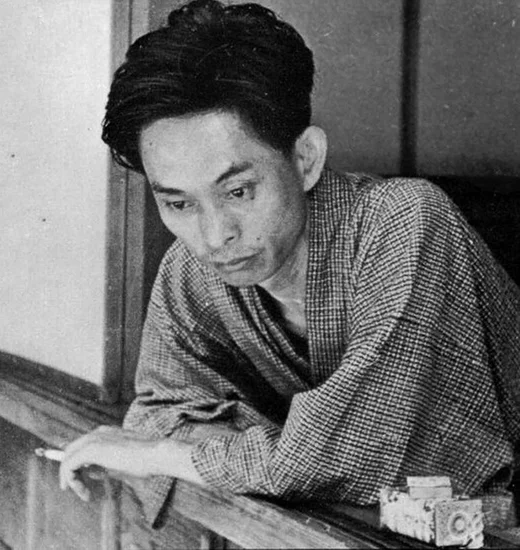
The Swedish Academy honored Kawabata for his narrative mastery and artistic sensitivity in expressing Japanese consciousness. His novels beautifully captured traditional Japanese aesthetics and philosophy.
Kawabata’s recognition marked a milestone for Japanese literature on the world stage. His award encouraged international appreciation for non-Western literary traditions and storytelling techniques.
1968 – Tommie Smith and John Carlos are ejected from the US Olympic team
Olympic officials expelled the American sprinters for their Black Power salute during the medal ceremony in Mexico City. Their protest highlighted racial inequality in America to a global audience.
The athletes sacrificed their Olympic careers to make a powerful statement about civil rights. Their iconic gesture became one of the most memorable moments in Olympic history.
1995 – The Million Man March takes place in Washington, D.C.
Louis Farrakhan organized the massive gathering of African American men on the National Mall, drawing approximately 837,000 participants. The march focused on personal responsibility and community empowerment.
The demonstration represented one of the largest political rallies in American history. Participants pledged to strengthen their families and communities while addressing social and economic challenges.
Religious and Social Events on October 16
1916 – Margaret Sanger opens the first family planning clinic in the United States
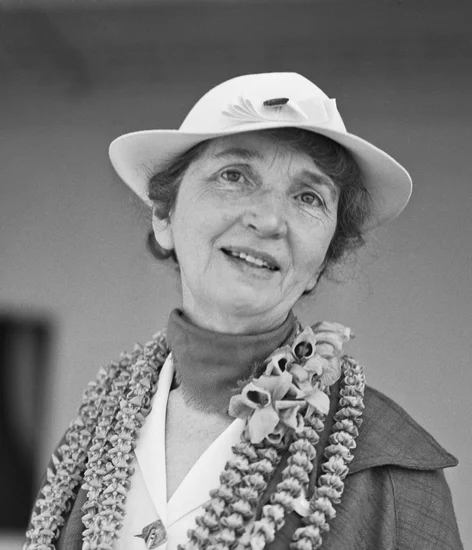
Sanger established America’s first birth control clinic in Brooklyn, New York, providing contraceptive information to working-class women. Police closed the clinic after ten days of operation.
Her pioneering work laid the groundwork for modern reproductive health services. The clinic’s opening marked the beginning of the organized birth control movement in America.
1978 – Cardinal Karol Wojtyła is elected to the papacy as Pope John Paul II
Polish cardinal Karol Wojtyła became the first non-Italian pope in 455 years, shocking the Catholic world. His election marked a dramatic shift in papal leadership and Vatican priorities.
John Paul II’s Polish background influenced his strong opposition to communism and emphasis on human rights. His papacy would transform the Catholic Church’s role in global politics and social justice.
1973 – Henry Kissinger and Lê Đức Thọ are awarded the Nobel Peace Prize
The Nobel Committee honored the American Secretary of State and North Vietnamese negotiator for their roles in the Paris Peace Accords. The award recognized their efforts to end the Vietnam War.
Lê Đức Thọ declined the prize, citing ongoing violence in Vietnam. The controversial award highlighted the complex relationship between diplomacy and lasting peace.
1984 – Desmond Tutu is awarded the Nobel Peace Prize

The Nobel Committee recognized the South African archbishop for his non-violent opposition to apartheid. Tutu’s moral leadership inspired international action against racial segregation.
His award increased global attention on South Africa’s human rights violations. Tutu’s recognition strengthened the international anti-apartheid movement and economic sanctions against the regime.
Business and Economic Events on October 16
1975 – The Australian Coalition sparks a constitutional crisis
Opposition parties in the Australian Senate voted to defer the government’s annual budget, creating an unprecedented constitutional crisis. The move threatened to shut down government operations.
The crisis challenged fundamental principles of Westminster parliamentary democracy. The deadlock would ultimately lead to the dismissal of Prime Minister Gough Whitlam by Governor-General John Kerr.
1962 – Cuban Missile Crisis begins
President John F. Kennedy received photographic evidence of Soviet nuclear missiles in Cuba, triggering the most dangerous confrontation of the Cold War. The crisis would last thirteen days.
Kennedy’s advisors debated military strikes versus diplomatic solutions while keeping the discovery secret. The crisis brought the world closer to nuclear war than any previous Cold War confrontation.
1951 – The first Prime Minister of Pakistan, Liaquat Ali Khan, is assassinated
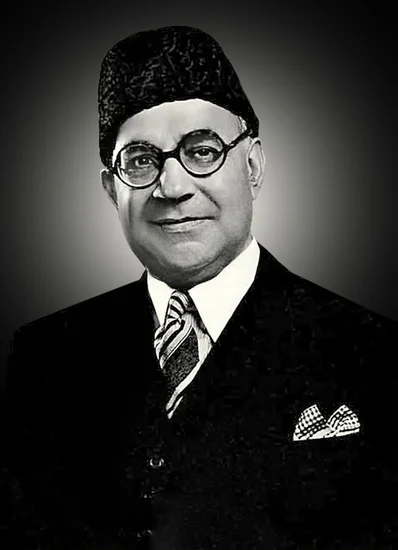
Unknown gunmen killed Pakistan’s founding prime minister during a public rally in Rawalpindi. His death created a political vacuum that destabilized Pakistan’s early democratic institutions.
Liaquat Ali Khan’s assassination marked the beginning of Pakistan’s chronic political instability. His death deprived the young nation of experienced leadership during its formative years.
Transportation and Infrastructure on October 16
1995 – The Skye Bridge in Scotland is opened

The controversial toll bridge connected the Isle of Skye to the Scottish mainland, ending the island’s dependence on ferry services. The bridge sparked fierce debates about privatization and access charges.
Local residents protested the expensive tolls, arguing that the bridge restricted rather than improved access. The controversy highlighted tensions between modernization and traditional Highland life.
1947 – The Philippines takes over administration of the Turtle Islands
The newly independent Philippines assumed control of the Turtle Islands and Mangsee Islands from British colonial administration. The transfer resolved long-standing territorial disputes in the region.
The island transfer demonstrated the Philippines’ growing sovereignty after independence from American colonial rule. The resolution strengthened Philippine territorial integrity and maritime boundaries.
2013 – Lao Airlines Flight 301 crashes on approach to Pakse International Airport

The ATR 72 aircraft crashed in severe weather conditions, killing all 49 passengers and crew members. The accident highlighted safety concerns in Southeast Asian aviation.
Investigators blamed the crash on pilot error and inadequate weather monitoring systems. The tragedy prompted improvements in regional aviation safety standards and pilot training programs.
Sports and Recreation on October 16
1996 – Eighty-four football fans die in Guatemala City stadium disaster
A massive crowd surge at Mateo Flores Stadium killed 84 spectators and injured 180 others during a World Cup qualifier. Poor crowd control and inadequate safety measures contributed to the tragedy.
The disaster highlighted dangerous conditions in Latin American football stadiums. FIFA implemented new safety standards for international matches following the catastrophe.
2011 – Dan Wheldon dies in Las Vegas IndyCar crash

English racing driver Dan Wheldon died in a horrific multi-car crash at Las Vegas Motor Speedway. The accident involved 15 cars and shocked the international racing community.
Wheldon’s death prompted significant safety improvements in IndyCar racing. The tragedy demonstrated the ongoing risks faced by professional racing drivers despite advanced safety technology.
2017 – Storm Ophelia strikes the U.K. and Ireland

The unprecedented hurricane-force storm battered Ireland and western Britain, causing widespread power outages and property damage. Three people died in storm-related accidents.
Ophelia marked the easternmost major hurricane ever recorded in the Atlantic Ocean. The storm’s unusual path highlighted changing weather patterns and climate change impacts.
Notable Births on October 16
1925 – Angela Lansbury, English-American actress

The future television icon entered the world in London, destined to become one of entertainment’s most beloved figures. Her early exposure to theater shaped her artistic sensibilities.
Lansbury would achieve fame through decades of memorable performances in film, television, and Broadway. Her portrayal of Jessica Fletcher in “Murder, She Wrote” made her a household name worldwide.
1927 – Günter Grass, German novelist and Nobel Prize laureate

The future literary giant was born in Danzig, experiencing firsthand the tumultuous events that would later influence his writing. His childhood during Nazi Germany profoundly shaped his worldview.
Grass would become one of Germany’s most important postwar authors, confronting his nation’s difficult past through literature. His novel “The Tin Drum” established him as a major voice in world literature.
1977 – John Mayer, American singer-songwriter and guitarist

The future Grammy winner was born in Bridgeport, Connecticut, showing early musical talent and passion for guitar. His teenage years were devoted to mastering blues and rock techniques.
Mayer would achieve massive commercial success while earning critical acclaim for his guitar skills. His blues-influenced pop songs reached millions of fans worldwide.
1992 – Bryce Harper, American baseball player

The future MLB superstar was born in Las Vegas, Nevada, demonstrating exceptional athletic ability from childhood. His early baseball talents attracted national attention and college scouts.
Harper would become one of baseball’s most dynamic players, winning multiple MVP awards. His powerful hitting and passionate play style made him a fan favorite and media personality.
1997 – Naomi Osaka, Japanese tennis player

The future tennis champion was born in Chūō-ku, Osaka, beginning her journey toward global stardom. Her multicultural background would later make her a powerful voice for social justice.
Osaka would win multiple Grand Slam titles while using her platform to advocate for racial equality. Her mental health advocacy helped change conversations about athlete wellbeing.
Notable Deaths on October 16
1959 – George Marshall, American general and Nobel Prize laureate
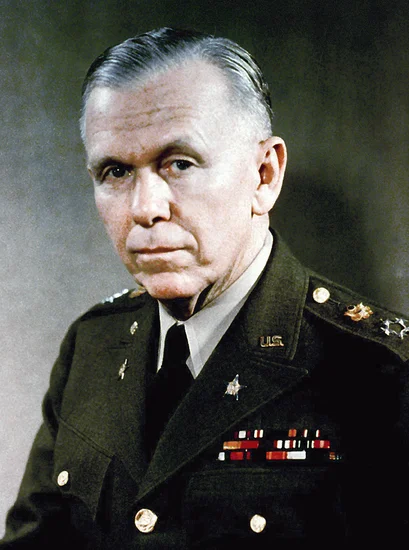
The architect of Allied victory in World War II passed away, leaving behind an extraordinary legacy of military and diplomatic achievement. Marshall had served as Army Chief of Staff during the war.
His postwar Marshall Plan rebuilt Western Europe and contained Soviet expansion. Marshall remains the only military officer to receive the Nobel Peace Prize for his diplomatic contributions.
1973 – Gene Krupa, American drummer and bandleader
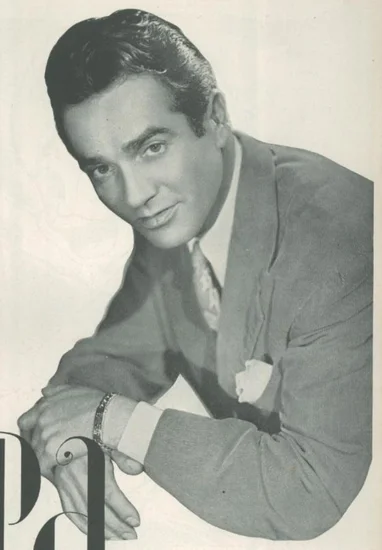
The legendary jazz drummer died in New York, ending one of the most influential careers in popular music. Krupa had revolutionized drumming techniques and brought percussion to the forefront of jazz.
His dynamic playing style and showmanship made drums a featured instrument rather than mere accompaniment. Krupa’s innovations influenced generations of drummers across all musical genres.
1981 – Moshe Dayan, Israeli general and politician
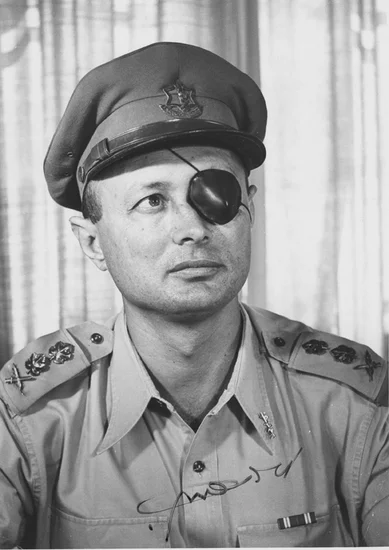
The iconic Israeli military leader died in Tel Aviv, concluding a remarkable career that spanned his nation’s founding struggles. Dayan’s distinctive eye patch made him instantly recognizable worldwide.
His military victories in multiple Arab-Israeli wars established Israel’s strategic superiority in the region. Dayan later served as foreign minister, helping negotiate peace with Egypt.
1997 – James A. Michener, American author and philanthropist
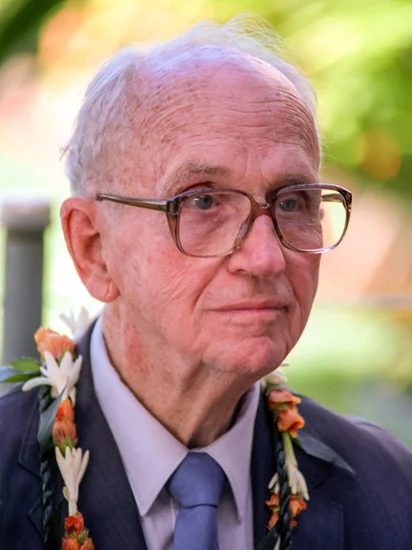
The prolific novelist passed away in Austin, Texas, after creating sweeping historical epics that educated millions of readers. Michener’s meticulously researched novels spanned continents and centuries.
His books like “Hawaii” and “Centennial” became cultural phenomena, inspiring television miniseries and tourism. Michener’s dedication to historical accuracy made his fiction both entertaining and educational.
2017 – Daphne Caruana Galizia, Maltese journalist and blogger

The fearless investigative journalist died in a car bomb attack near her home in Malta, shocking the international community. Galizia had exposed government corruption and organized crime connections.
Her assassination highlighted the dangerous conditions faced by investigative journalists in Europe. Galizia’s death prompted international investigations into Maltese political corruption and press freedom.
Holidays and Observances on October 16
World Food Day
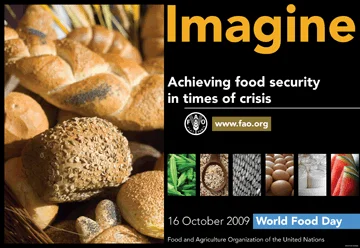
The United Nations designated this date to raise awareness about global hunger and food security issues. The observance highlights the fundamental human right to adequate nutrition.
World Food Day promotes international cooperation in addressing agricultural challenges and malnutrition. The day encourages sustainable farming practices and equitable food distribution systems.
Boss’s Day

American workers traditionally show appreciation for their supervisors and managers on this date. The observance recognizes the challenges of leadership and workplace management.
The holiday encourages positive workplace relationships and mutual respect between employees and management. Many companies use the day to celebrate outstanding leadership and mentorship.
Teachers’ Day
Chilean schools and communities honor educators for their contributions to society and individual development. The observance recognizes teachers’ vital role in shaping future generations.
The day celebrates educational excellence and the dedication of classroom professionals. Students and parents express gratitude for teachers’ commitment to learning and personal growth.
